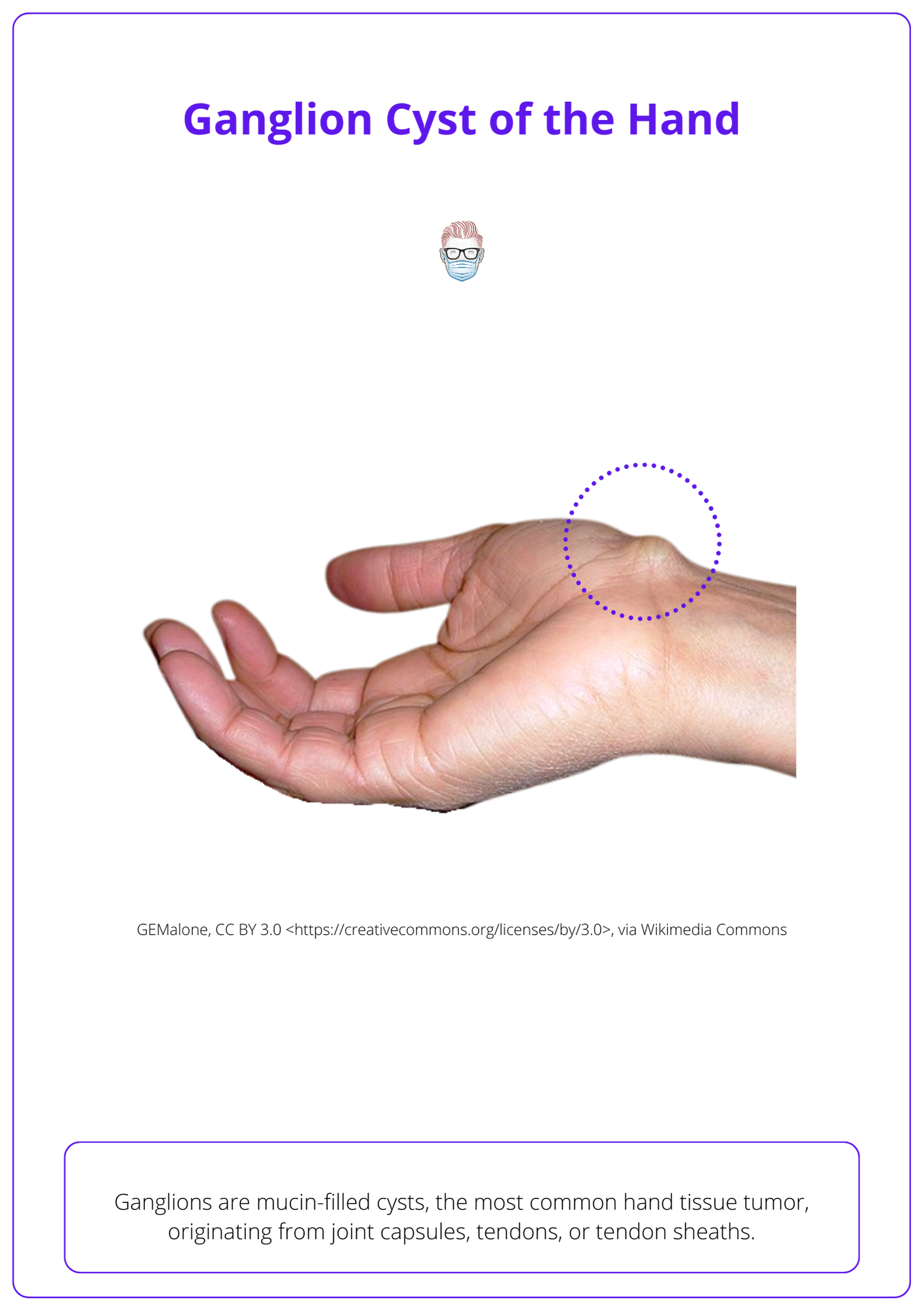In this week's edition
- ✍️ Letter from P'Fella
Good research vs. CV research. - 🤓 The Sunday Quiz + Leaderboard
How well do you know ganglion cysts? - 🎙️ Behind the 'Fella
Announcing our upcoming guest appearance! - 🎓 theFellow's Corner
What has our team been up to? - 📖 What Does the Evidence Say?
Should research be mandatory during surgical training? - 🔥 Recommended Articles of the Week
About academic publications, critical evaluation of studies, & LOE in plastic surgery research; with 1 sentence summaries. - 💕 Feedback
Suggest ideas & give feedback!
A Letter from P'Fella
Good Research vs. CV Research?
Let's get real for a moment. Have you ever wondered if the research we’re all pushing so hard to produce is actually moving the needle in plastic surgery? Is it driven by genuine curiosity and a desire to innovate, or are we just checking boxes to climb the career ladder?
👇
It’s time to have an open conversation about the true state of research in our field, and I need your input to make this discussion meaningful. Before we dive deeper, I’d love to get a quick sense of your research experience:
What Motivates You to Do Research?
First off, why are we doing this? Is your research motivated by a passion for discovery, or is it more about padding your CV? Don’t worry, there are no wrong answers here—just honest ones. I’m asking you to rank these motivations from most to least important:
The Biggest Barrier to High-Quality Research
Let’s face it—high-quality research is hard. But what makes it so difficult? Is it the lack of time, funding, or maybe something else? I want to hear from you:
Part-Time vs. Full-Time Research
Here’s a hot topic: should doctors juggle research with their clinical duties, or should research be a full-time gig? Let’s weigh the pros and cons together.
Many believe that compulsory research doesn’t necessarily produce good science or encourage lifelong learning. It often wastes resources and creates avoidable problems. Offering two distinct career paths for training could better achieve objectives. In surgery and research, there are many right ways to succeed; insisting on only one approach is usually wrong.
Moreover, assessing the "quality" of a surgical trainee should focus on their operational skills.
That said, academic plastic surgery is vital, with high-quality trials like the Reconstructive Surgery Trials Network (RSTN) setting new standards and pushing boundaries in our field.
Lots of love,
P'Fella ❤️
The Sunday Quiz
How Well Do You Know Ganglion Cysts of the Hand & Wrist?
Welcome to the next round of The Weekly Quiz.
Each edition of thePlasticsPaper includes a quiz question designed to challenge and engage our readers. Keep your wits about you and join in every week—the winner at the end of six rounds will earn you a $100 voucher.

Sunday Quiz Finale Snippet
We’re excited to announce our first guest on the podcast: Justin Wormald 🥁 Justin has excelled in producing high-quality research in plastic surgery and has built an impressive network through the RSTN.
As an academic clinical lecturer at Oxford Trauma and Emergency Care and deputy director of the Surgical Intervention Trials Unit at the University of Oxford, he brings valuable insights. This is a great chance to ask all your research-related questions.
If there's anything you want to hear from us or Justin in this upcoming research episode, drop your suggestions below.
the Fellows' Corner
This Week's Focus: Ulnar Tunnel Syndrome
If you haven't got the chance yet, here's a reminder to check out our fresh articles, clinical cases, and surgical techniques focused on nerve compressions.
Here's an overview of our article on Ulnar Tunnel Syndrome.
Ulnar Tunnel Syndrome
Definition
Ulnar tunnel syndrome or Guyon’s canal syndrome is compression of the ulnar nerve as it runs through the osseofibrous ulnar tunnel of the wrist.
Anatomy
The ulnar tunnel is formed by the hamate, pisiform, transverse carpal ligament, volar carpal ligaments, and hypothenar aponeurosis.
Aetiology
There are several causes of ulnar tunnel syndrome, of which ganglion is the most common.
Clinical Presentation
Clinical features depend on location of compression and may be motor, sensory, or both.
Investigations
An X-ray is the primary investigation. US and MRI can be used to look for soft tissue masses resulting in external compression.
Management
Non-surgical treatment includes lifestyle advice, physiotherapy, and splinting. Surgery is indicated when these measures fail.
What Does the Evidence Say?
Should Research Be Mandatory During Surgical Training?
A range of studies have explored the role of mandatory surgical research during residency. Brochu (2018) and Papasavas (2013) both found that a structured research program can significantly increase academic productivity, with the latter reporting a three-fold increase in scientific presentations. Thakur (2000) and Sabir (2003) highlighted the positive impact of research training on career outcomes, with a higher likelihood of holding academic positions and increased scholarly activity. Atesok (2012) and Schultz (1996) emphasized the importance of integrating research into residency education, with the latter providing key elements for successful resident research. However, Benesch (2022) cautioned against viewing research as a one-time activity, instead advocating for a culture of scientific discovery.
Articles of the Week
3 Interesting Articles with 1 Sentence Summaries.
Should academic publishing focus on the dissemination of knowledge and improvement of patient care? What are the negative impacts of the "publish or perish" culture on individual well-being and the integrity of scientific research?
How to critically evaluate the methodology and results of studies, how different levels of evidence (LOE) grading scales are used, and the challenges of conducting high-quality randomized controlled trials (RCTs) in plastic surgery.
An analysis of trends in the quality of research published in plastic surgery literature over a decade which reveals an increase in higher-quality studies, specifically Level I and II evidence, although case series and retrospective cohort studies remain predominant.


